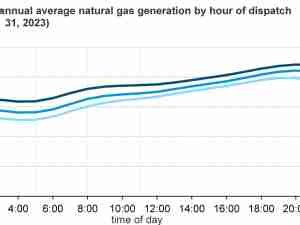A push by the US into green diesel poses a threat to Argentina’s biggest export.
The vast amounts of soybeans set to be crushed for its oil — a key feedstock in making renewable diesel — will create piles of co-product meal in the US. Much of the excess supply will be shipped overseas, eroding prices for the widely used animal feed ingredient.
It’s the latest demonstration of how the Biden administration’s landmark decarbonization plan — and the huge subsidies it offers to all forms of green energy — has the potential to cause tectonic shifts in global agricultural markets. And it’s a blow for Argentina’s troubled economy and its farmers, who are already facing fierce competition from neighboring agriculture powerhouse Brazil.
“We’re going to suffer in both market and prices,” said Gustavo Idigoras, who heads Argentina’s crushing industry group Ciara, which represents companies such as Cargill Inc., Archer-Daniels-Midland Co. and Cofco International Ltd. “What will we do with our 30 million tons of meal?”
Argentina has largely dominated the meal trade for more than three decades as a combination of abundant soybean surpluses, tax incentives and the short distance between the nation’s farm belt and export ports led to a boom in domestic processing capacity.
Now, companies including Bunge Global SA and Cargill are rushing to expand their crushing capacity in the US as they seek to meet soaring domestic demand for vegetable oil. That means they will need to find a home for the meal coming with it. Processing soybeans creates four metric tons of meal for every one ton of oil.
“Argentina is the potential loser in all of this,” said Aaron Hanson, a senior economist at GlobalData Plc. The country will likely “shift a little bit more in the direction of just exporting” unprocessed beans rather than meal.
President Javier Milei is trying to reset the crisis-prone economy enduring 276% inflation that’s expected to push the country into recession this year. The upcoming crop harvest will be pivotal to his government’s ability to get badly needed export dollars to shore up the peso, cool inflation and rebuild the economy.
Soybean meal, a product that would typically fetch a higher value than the beans, is the nation’s main export product. Last year, the commodity accounted for roughly 12% of a total $67 billion in sales overseas even after a drought decimated domestic soybean production.
The nation of 46 million people, which saw meal shipments balloon to roughly half of global exports by 2010, has struggled for years to remain competitive. Higher export tariffs, an often-overvalued currency and poor crops have led to a steep reduction in soybean output, leaving crushers with significant idle capacity.
Argentina is facing increased competition with Brazil, the world’s largest soybean producer, which is also ramping up crushing to meet increasing demand for soy-based fuels and creating exportable meal supplies as a result. The largest South American economy has recently raised the mix of soybean-based fuel into diesel by two percentage points to 14%, and plans another increase to 15% next year.
But the US poses the bigger challenge. Soybean processors have 21 outstanding projects to expand capacity in the US, with the potential to boost annual production of meal by more than 13 million metric tons through 2026, according to Gordon Denny, an agricultural consultant and former procurement director at Bunge. Meal exports from the nation are forecast at a record 13.9 million metric tons in the current 2023-24 season, according to the US Department of Agriculture.
Argentina is particularly vulnerable, as it processes a large share of its beans — about 70% — and the bulk of its meal production is set for export. Brazil, by comparison, typically exports mostly beans, and consumes more than half of the meal it produces.
Increased US competition stemming from newer, more efficient plants means some Argentina facilities will be forced to shut, Denny said.
Argentina’s incentive to export meal could be further eroded if Milei revives a proposal for additional tariff increases on meal and oil to 33%. That would be the same rate levied on shipments of unprocessed beans, fitting Milei’s free-market philosophy of a level playing field for business.
To be sure, the US’s booming demand for soybean oil could offer a silver lining for companies crushing soy in Argentina. Also, Milei’s huge devaluation of the peso in December — and expectations he won’t keep the currency strong to quell inflation — may encourage planting and drive a steady flow of farmer selling. Processors have regularly had to deal with volatile Argentine supplies as growers hoarded to bet against an overvalued currency.
In addition, companies expanding in the US aren’t abandoning Argentina. Bunge, which has roots in the South American country going back more than 100 years, remains committed to its business there.
“Argentina is always going to be competitive,” Bunge Chief Executive Officer Greg Heckman said in an interview in November. “We want to work with the government. We understand how important agriculture is to Argentina.”









